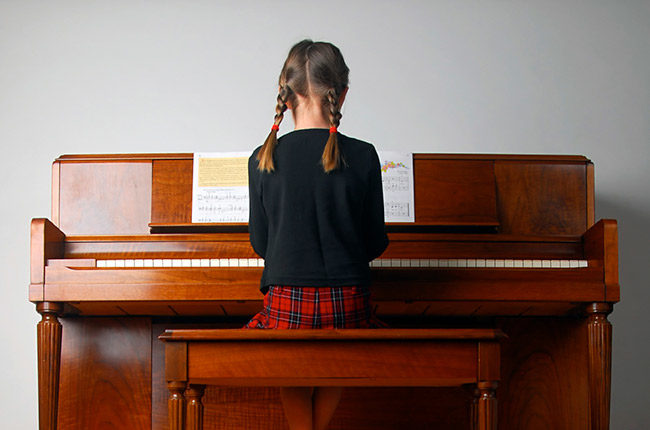The Virtuoso Parent
by Frances Wilson
Following my earlier article about respect between the teacher, student and parent of the student, I would now like to celebrate the “virtuoso parent”.
As private instrumental teachers, we interact with the parents of our students on a regular basis. They deliver and collect their offspring to and from our homes or teaching studios, they pay our bills, they (hopefully) recommend us to other parents of potential students: they are, in many ways, our “bread and butter”. It is therefore important that we maintain good relations with the parents of our students.
One of the most crucial roles of the parent is to ensure that the student completes the assigned homework (practising) between lessons, and we rely on parents to do their bit and encourage their children to practice regularly. I am sure all of us who teach privately have come across certain “types” of parent:
There’s the one who feels the teacher should be left alone to do everything, has little involvement with lessons and the teaching studio, and occasionally appears at concerts or other events, usually comparing their offspring unfavourably to other students/performers. Or the one who, on picking up the child, berates them about practising in front of the teacher, or complains to the teacher how little Timothy is “so difficult about practising and never listens“. Then there is the pushy parent who regularly questions the teacher’s judgement, pushes for the child to be fast-tracked through graded exams, hovers over the child while he/she practices, and re-teaches the child between lessons, often undoing the teacher’s careful work and, ultimately, leaving the student feeling confused and demoralised. There are parents who don’t reply to emails or text messages, but who are quick to demand lesson slots are rejigged at a moment’s notice because little Amy has a play date on piano lesson day, or who never pay on time. These are the petty exigencies of running a private teaching practice, and it is important that we don’t let this get to us too much.
Mozart: Piano Sonata in B flat, K281, Andante amoroso
I am fortunate in my own teaching practice that the parents of my students are a really wonderful bunch of people – supportive, enthusiastic and encouraging both to their children and to me, and many of them have also become good friends of mine. I like to call these types of parents Virtuoso Parents – and they are worth their weight in gold, so be nice to them and get them on side.
So what makes a parent a Virtuoso Parent? First, don’t confuse the Virtuoso Parent (VP) with the Tiger Parent (or Tiger Mother). VPs know that too much pushing can be detrimental to the child’s progress, and that hot-housing, in any subject, may not be best for their child: equally, they understand that the right kind of support will help the child reach his or her potential. They are interested, positive and enthusiastic.
The VP reads the teacher’s notes in the practice notebook (generally, the teacher-home means of communication), ensures the practising is undertaken, fills in the practice notebook and leaves helpful comments for the teacher at the next lesson. VPs also understand that enforced or negative practise sessions are a hiding to nowhere, and that sometimes just being in the same room as the child who is practising can be useful and supportive (piano practice can be a very lonely business!).
VPs understand that the teacher often works to a tight schedule and relies on students arriving and leaving lessons on time to run an efficient studio. VPs enjoy involvement in the teaching studio, whether by making cakes for student concerts or signing their children up for ‘extra-curricular’ activities such as workshops, competitions or festivals. They take on board the teacher’s suggestions for “further listening”, watching YouTube clips, or going to concerts. They communicate with the teacher, and are accommodating and sympathetic if the teacher has to reschedule a lesson due to other commitments or illness, and they rarely make unreasonable demands on the teacher.
The best part is that the children of VPs tend to be keen to come to lessons, are eager to learn, and make noticeable progress – because they feel supported both in lessons and at home.
